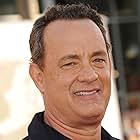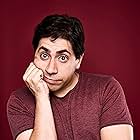IMDb RATING
5.5/10
3.2K
YOUR RATING
With his older brother off to war, fourteen-year-old telegram messenger Homer Macauley comes of age in the summer of 1942.With his older brother off to war, fourteen-year-old telegram messenger Homer Macauley comes of age in the summer of 1942.With his older brother off to war, fourteen-year-old telegram messenger Homer Macauley comes of age in the summer of 1942.
- Awards
- 2 nominations
- Director
- Writers
- All cast & crew
- Production, box office & more at IMDbPro
Storyline
Did you know
- GoofsWhen they are in the cinema watching the newsreel, there's a shot of a man carrying a wounded solider across a river. The commentary states "when this country was extending a helping hand."
That shot is actually of an Australian soldier helping a wounded Australian in the Kokoda campaign in New Guinea. The film is footage from Kokoda Front Line, by Damian Parer, who was an Australian combat camera man.
- Quotes
Mrs. Macauley: There will always be pain in this world, Homer. And a good man will seek to take the pain out of things.
Featured review
After World War II, William Saroyan gambled away all his money but he preferred to resort to hack work rather than sell movie rights to any of his novels. Not after his disappointment with the original movie of The Human Comedy. Part of it was vanity. He'd wanted to direct the movie, and MGM wouldn't let him. But it's also true that Hollywood has its own point of view and it doesn't always match Saroyan's.
In Ithaca, which is a remake of the Human Comedy (now that Saroyan is dead), the main story and characters are preserved, but to me it doesn't look like Saroyan. In the book's classic illustrations by Don Freeman, Mrs. Macauley is older-looking and certainly not an attractive but obvious plastic-surgery veteran like Meg Ryan. Grogan is older-looking too. The character brought most successfully to the screen is Ulysses, although he shouldn't be losing his baby teeth if, as the dialog says, he's four. He's remarkable.
The visuals are, to my taste, too expressionistic. The telegraph office is huge, the roads are wide, and things are too big in general except where Marcus the faraway soldier is involved. All the scenes with Marcus are crowded. That does emphasize the contrast between Ithaca and where Marcus is, but Marcus is not remote enough. Because there are continual voice-overs from his letters, I think the audience doesn't appreciate his absence as a factor. Even the dead father isn't completely absent, and although he adds a sorrowful note, this unkillable family togetherness diminishes the philosophical message that our human condition is one of loneliness and we must actively reach out.
On the one hand, I expected a dustier, less prosperous-looking Ithaca. On the other hand, I was surprised that the choice of music verged on primitivity. More Appalachian than Californian.
I think that a more realistic movie might have worked better, because of the need to carry some dialogue that can, if not handled right, sound unrealistically divorced from what everyday people really say. People declaiming unrealistic-sounding dialogue amidst unrealistic-looking scenery may be fine for the stage but it's difficult to sell on the screen.
Still, the movie tries to be respectful of the original. It even includes some salutes to matters that only readers of the book will fully appreciate-- such a mention of unripe apples, referencing a whole episode involving unripe apricots in the book. I hope that since Saroyan is no longer alive to object, Hollywood will continue to mine his canon.
In Ithaca, which is a remake of the Human Comedy (now that Saroyan is dead), the main story and characters are preserved, but to me it doesn't look like Saroyan. In the book's classic illustrations by Don Freeman, Mrs. Macauley is older-looking and certainly not an attractive but obvious plastic-surgery veteran like Meg Ryan. Grogan is older-looking too. The character brought most successfully to the screen is Ulysses, although he shouldn't be losing his baby teeth if, as the dialog says, he's four. He's remarkable.
The visuals are, to my taste, too expressionistic. The telegraph office is huge, the roads are wide, and things are too big in general except where Marcus the faraway soldier is involved. All the scenes with Marcus are crowded. That does emphasize the contrast between Ithaca and where Marcus is, but Marcus is not remote enough. Because there are continual voice-overs from his letters, I think the audience doesn't appreciate his absence as a factor. Even the dead father isn't completely absent, and although he adds a sorrowful note, this unkillable family togetherness diminishes the philosophical message that our human condition is one of loneliness and we must actively reach out.
On the one hand, I expected a dustier, less prosperous-looking Ithaca. On the other hand, I was surprised that the choice of music verged on primitivity. More Appalachian than Californian.
I think that a more realistic movie might have worked better, because of the need to carry some dialogue that can, if not handled right, sound unrealistically divorced from what everyday people really say. People declaiming unrealistic-sounding dialogue amidst unrealistic-looking scenery may be fine for the stage but it's difficult to sell on the screen.
Still, the movie tries to be respectful of the original. It even includes some salutes to matters that only readers of the book will fully appreciate-- such a mention of unripe apples, referencing a whole episode involving unripe apricots in the book. I hope that since Saroyan is no longer alive to object, Hollywood will continue to mine his canon.
- How long is Ithaca?Powered by Alexa
Details
Box office
- Budget
- $5,000,000 (estimated)
- Runtime1 hour 36 minutes
- Color
- Aspect ratio
- 2.35 : 1
Contribute to this page
Suggest an edit or add missing content























